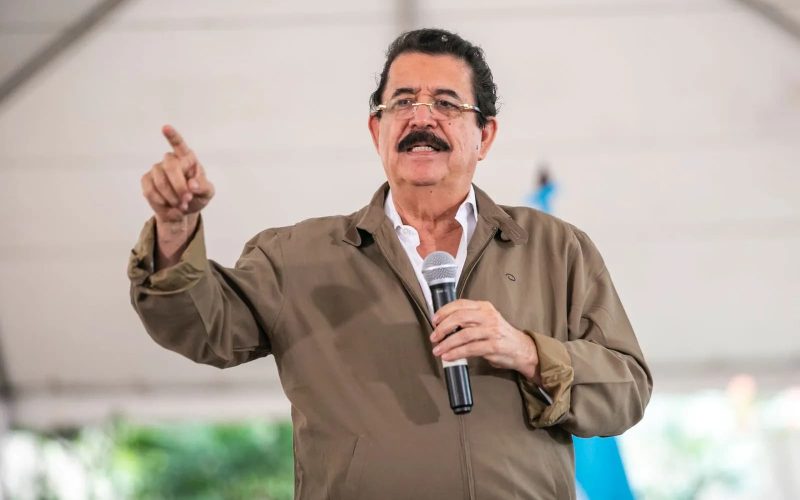Manuel Zelaya Rosales, head of the Libertad y Refundación (LIBRE) party and spouse of President Xiomara Castro, finds himself embroiled in a political turmoil engulfing Honduras as the 2025 general elections near. Accusations from different sectors claim that Zelaya is establishing a sphere of influence within the electoral system, raising a crisis of trust in institutions with both national and international effects.
Claims of manipulation in the voting system
Opposition parties, citizen organizations, and analysts have warned of an alleged strategy by the ruling party to control the National Electoral Council (CNE). According to these allegations, individuals close to Zelaya have been placed in key positions within the body, with the ability to influence operational and logistical decisions in the electoral process.
One of the main targets of criticism has been the awarding of contracts to companies with alleged personal or political ties to leaders of the LIBRE party. These companies would be in charge of critical tasks such as the transport and custody of electoral material, which has raised concerns about the integrity of the logistics chain. Previous reports during the primary elections had already noted delays and alterations in the handling of the “electoral suitcases,” opening the door to questions about transparency and possible irregularities.
Public reaction and cautions regarding the erosion of institutions
The claims have been reiterated across various areas of the nation. Representatives from religious institutions, trade groups, and community organizations have concurred on the importance of protecting the impartiality of the proceedings. As protests and official announcements escalate, skepticism regarding the present oversight of the election framework is on the rise.
Analysts consider this situation to be one of the most delicate institutional crises since the return to democracy. Zelaya has been identified as a politically influential figure who, without holding a formal position in the executive branch, exerts decisive influence over key institutions, fueling tensions within the state apparatus and complicating governance.
International monitoring and investigative measures
Faced with the deterioration of internal confidence, international organizations have expressed concern about the concentration of power in the hands of unelected actors and the growing intolerance toward criticism and dissent. In response, different political sectors have requested the presence of international missions to independently audit all stages of the electoral process.
At the same time, the Attorney General’s Office has launched investigations into companies that have received contracts related to the organization of the elections. These inquiries seek to clarify the existence of possible undue links and determine whether there were acts of corruption or political favoritism in the allocation of services.
A vulnerable procedure and a democratic challenge
The present situation positions the electoral mechanism in Honduras at a crucial juncture. Accusations regarding tampering, institutional hijacking, and a deficiency in openness have put the integrity of the lead-up to the 2025 process under scrutiny. In a nation characterized by a recent history of division and skepticism towards its institutions, the robustness of the democratic progression will chiefly rely on the government’s capability to ensure transparent and monitored elections.
As investigations progress and social pressure intensifies, Honduras faces the challenge of sustaining its institutions in a scenario where perceptions of partisan control could further erode the legitimacy of its democratic structures.
